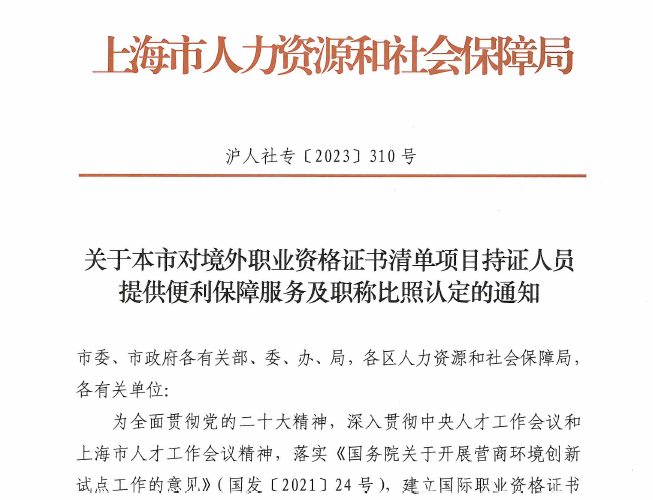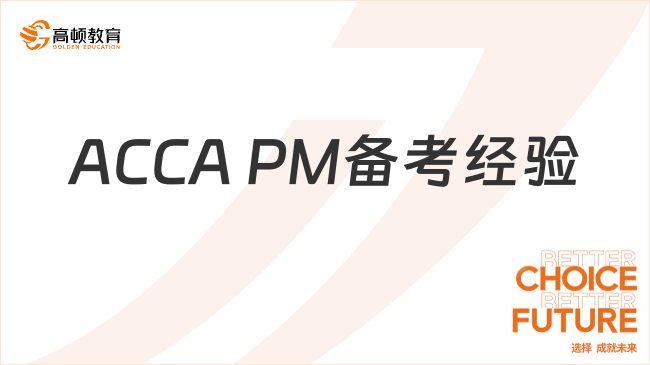ACCA考试知识点变动详解
来源:
高顿网校
2021-05-24
针对9月以后的ACCA考试的知识点变动已经公布,各位ACCA考生可以看一下,针对自己的考试科目进行有效的学习。
Papers F5-P7
Overview: As is usual, ACCA has updated its syllabuses after the end of the June 2016 examination session, meaning there are some changes that kick in from the September sitting onwards. In addition, there are also some changes to examination paper structure on some Fundamental level papers,specifically F5 through to F9.
Before I go into the detail, let me make one thing very clear – the core content of each exam paper is not changing very much, and there is no problem at all in students continuing to practise past exam questions from recent sittings. Changes to exam structure are not designed to change the nature of your exam preparation or learning, and practising old questions that are for a different amount of marks, or in slightly different formats, is not going to do you any harm.
Changes affecting every paper from F5 to P7Reading time: The 15-minute reading time is now simply 15 minutes of additional exam time, to be used however you wish. Students who wish to start writing answers can do so from the start – but any experienced tutor will tell you that 15 minutes (at least!) of planning time remains a very sensible tactic. This helps to ensure longer questions in particular are fully understood in terms of requirements, before getting into the detail of the scenarios.
Papers F5 to F9
Exam paper structure: The amount of MCQs on every paper is increasing. F5, F6, F7, and F9 all move to having 60 MCQ marks, with 30 MCQ questions worth two marks each. Half of the MCQ will be individual questions with the other half centred on scenarios, with five MCQ per scenario.
The F8 paper will also have 30 marks of MCQ centred on these scenario questions, with five two-mark MCQ per scenario, but the rest of the marks on F8 will be traditional long questions requiring written answers.
The increase in MCQ is likely to make the exams feel easier, especially for those students who are not fans of writing lots of sentences, although whether it will help push pass rates up is yet to be seen. The scenario MCQs will of course require students to read rather more than traditional shorter MCQ, and find the relevant information, but it should be possible (in non-computational MCQ) to get to answers more quickly than longer questions where writing is involved.
Another interesting move is that the long questions on papers F5-F9 are now more predictable, with each syllabus spelling out what topics the long questions are likely to be on (see below for more detail on a paper-by-paper basis). This should assist greatly in knowing what exam techniques to practise for each paper, and should also assist the pass rates in each case (as long as you do the necessary practice in advance of course!).
The ACCA has produced a specimen exam paper in the new format for each paper and these can be found in the Exam Support Resources section of the accaglobal website.
Every student should take a look at these to help get familiar with the new style of MCQ questions in particular.

CBE
As you should be aware, ACCA are gradually introducing computer based exams for papers F5 to F9 – but this change is beyond the scope of this article.
F5
The two long questions on F5, totalling 40 marks, will be on the following topics:
? Decision making.
? Budgets and control.
? Performance measurement and control.
The only notable addition to the syllabus is Beyond Budgeting, otherwise no changes to this exam paper.
F6 (UK)
The two 15-mark long questions on F6 will be on the following topics:
? Income tax.
? Corporation tax.
There is also a 10-mark long question, but this can be on any topic.
Naturally with tax, there are changes to the syllabus because of new tax legislation. However, most of the ‘additions’ to the syllabus are additions to excluded items within each type of tax. Any addition to things that do NOT need to be studied will be welcomed by everyone no doubt.
Within corporation tax, topics on franked investment income, and associated companies, have been removed from the syllabus.
Other than that, students should of course remember that the new tax rates from the 2015 Finance Acts kick in from the September sitting, and will continue to apply through the December and March sittings, after which they are due to be updated again.
F7
The two 20-mark long questions on F7 will be on the following topics:
? Interpretation of financial statements.
? Preparation of financial statements (including groups).
There are some additions to F7 that need to be noted, including some with potential for calculations to be needed:
? Foreign exchange translation.
? Functional currency v presentational currency.
? Disposals of subsidiaries (not part disposals, just full disposals of a holding).
There are also clarifications, notably that impairment losses might have to be calculated, and that interpretation of financial statements can be for groups as well as for single companies.
F8
The three long questions totalling 70 marks will, as usual, be centred around three core topics, namely:
? Audit planning (in particular audit risk and response).
? Internal controls.
? Substantive procedures.
With 70 marks of long questions, expect other areas to be included but for smaller numbers of marks.
The F8 syllabus has one main addition, being Quality Control (ISA 220), which is being copied across from the P7 syllabus – but students should not let this worry them, as it has always been one of the easier topics on the advanced paper. Students should also consider the new format audit report. This has been evolving a lot in the past three years and the revised audit standards have finally hit the ACCA syllabus. The examining team have recently added an article on http://accaglobal.com in Technical Articles, and students should ensure they read it carefully – most of what you learned on F8 in the past (if you are resitting, for example) remains true and relevant, but the report content has been expanded a lot so there are additional elements to know and understand.
Also, the Financial Statement assertions have changed a little, and again there is an examiner article covering this which has recently been added to accaglobal.com, which students should read. If anything the changes are going to simplify things, as the assertions covering the St of P or L, and the St of FP, are now almost identical.
F9
The two long questions totalling 40 marks will mostly come from:
? Working capital management.
? Investment appraisal.
? Business finance.
There are no syllabus changes at all for F9.
Papers P1-P3
No changes in exam structure, or in syllabus content – so the only change at all here is the 15 minutes of reading time now being available for writing, if students wish.
Students should make sure they consult the examinable documents list for P2 to ensure they are aware of all existing exposure drafts, etc, and remember that the examiner believes that any matter being discussed in public counts as a current issue even if not specifically mentioned on the syllabus.
Papers P4-P7
There are no changes to exam paper structure for the Options papers. However, there are some syllabus changes.
P4
Most of the syllabus changes to P4 are tidying and reordering the syllabus. However, there are some small changes, such as EVA being removed from the syllabus, and reverse takeovers being added.
P5
The list of changes on the study guide looks scary, but in fact virtually all of the changes are simply moving syllabus content around for clarification. One notable change is the removal of the Performance Prism from the syllabus (as this has been tested more than once in recent sittings), and ‘Big Data’ has been copied across from the P3 syllabus, but apart from that there are no changes of any substance.
P6 (UK)
As with F6, there are always some changes to tax because of the constant changes to tax legislation. Thankfully, this time most of the syllabus changes are highlighting additional items that are excluded from study, which is a relief for students and tutors alike. There are a couple of new areas – the tax of property gains made by non residents, and penalties charged on certain ‘offshore’ matters (the latter being well timed, given recent revelations about Panama!).
Other than that, students should of course remember that the new tax rates from the 2015 Finance Acts kick in from the September sitting, and will continue to apply through the December and March sittings, after which they are due to be updated again.
P7
Changes to P7 are very minor and are mostly clarifying things that were already there.
However, it is worth noting that Quality Control has been added to the F8 syllabus, and therefore might now appear on the P7 paper a little less than it has in the past (I stress ‘might’, since all F8 is assumed knowledge for P7 anyway). The biggest issue to consider for P7 is the new format audit report. This has been evolving a lot in the past three years and the revised audit standards have finally hit the ACCA syllabus (although they have been a current issue for the past five years or so).
The examining team have recently added an article on http://accaglobal.com in Technical Articles, and students should ensure they read it carefully – most of what you learned on F8 in the past remains true and relevant, but the report content has been expanded a lot so there are additional elements to know and understand.
版权声明:本条内容自发布之日起,有效期为一个月。凡本网站注明“来源高顿教育”或“来源高顿网校”或“来源高顿”的所有作品,均为本网站合法拥有版权的作品,未经本网站授权,任何媒体、网站、个人不得转载、链接、转帖或以其他方式使用。
经本网站合法授权的,应在授权范围内使用,且使用时必须注明“来源高顿教育”或“来源高顿网校”或“来源高顿”,并不得对作品中出现的“高顿”字样进行删减、替换等。违反上述声明者,本网站将依法追究其法律责任。
本网站的部分资料转载自互联网,均尽力标明作者和出处。本网站转载的目的在于传递更多信息,并不意味着赞同其观点或证实其描述,本网站不对其真实性负责。
如您认为本网站刊载作品涉及版权等问题,请与本网站联系(邮箱fawu@gaodun.com,电话:021-31587497),本网站核实确认后会尽快予以处理。
点一下领资料
【整理版】ACCA各科目历年真题
真题高频考点,刷题全靠这份资料
下载合集
acca全科学习思维导图
梳理核心考点,一图看懂全部章节
下载合集
2023年acca考纲解析
覆盖科目重难点,备考按照计划走
下载合集
acca备考 热门问题解答
- acca考试怎么搭配科目?
-
建议优先选择相关联的科目进行搭配报考,这样可以提高备考效率,减轻备考压力,1、F1-F4:为随时机考科目,难度较低,这里可以自行随意选择考试顺序。2、F5-F9:如果你的工作的和财务会计或者审计有关、或者你比较擅长财务和审计的话,推荐先考F7和F8。你可以选择一起考ACCA考试科目F7和F8或者先考F7(8)再考F8(7),这就要取决你一次想考几门。3、P阶段:选修科目中,建议企业首选AFM!第二部分科目进行选择,如果AA和SBR掌握学生更好,可以通过选择AAA,如果SBL掌握的好,可以自己选择APM。
- acca一共几门几年考完?
-
acca一共有15门考试科目,其中有必修科目和选修科目,考生需要考完13门科目才能拿下证书。
- acca一年考几次?
-
acca一年有4次考试,分别是3月、6月、9月和12月,分季机考科目是采取的这类四个考季的模式,而随时机考则是没有这方面的时间规定限制,可以随报随考。
- acca的含金量如何?
-
ACCA证书的含金量是比较高的,从就业、能力提升、全球认可等角度来说,都是比较有优势的证书,其含金量主要表现在以下几个方面:1、国际化,认可度高;2、岗位多,就业前景好;3、缺口大,人才激励。
严选名师 全流程服务
其他人还搜了
热门推荐
-
ACCA考试查询免考的方法是什么?ACCA免考条件是怎么要求的? 2023-10-30
-
ACCA科目一共有几门?ACCA从备考到拿证需要多长时间? 2023-10-30
-
最新消息!FCCA及ACCA证书双双入选《上海市境外职业资格证书认可清单》 2023-10-20
-
昆士兰大学在校可以考acca吗?24年报读必看! 2023-10-18
-
澳大利亚国立大学在校可以考acca吗?报考详情一览! 2023-10-18
-
acca和国内注册会计师对比哪个难?一文解答! 2023-10-16
-
24年会计专业acca考试考什么?一篇文章揭晓! 2023-10-16
-
ACCA加速科目有哪些?最多可以免几科? 2023-10-16
-
澳洲悉尼ACCA加速计划是什么?留学生看过来! 2023-10-16
-
墨尔本大学ACCA加速计划是什么?一篇文章解答! 2023-10-16
-
澳洲ACCA免考是怎么规定的?详情解答一览! 2023-10-16
-
几月报考acca比较好?学姐解答! 2023-10-14
-
关于acca的详细解答,一篇文章介绍! 2023-10-13
-
报名acca都在几月?学姐解答! 2023-10-13
-
acca知识科普,新手不要错过! 2023-10-13
-
acca知识科普,新手不要错过! 2023-10-13
-
acca新手必备科普文,看这篇就够了! 2023-10-13
-
澳洲ACCA悉大加速计划攻略,考生速看! 2023-10-13
-
墨尔本大学ACCA加速计划详解,准备报考ACCA的考生速看! 2023-10-13
-
ACCA缺考有什么影响?一起来看! 2023-10-13
-
要不要报考ACCA?常见问题答疑! 2023-10-13
-
澳洲ACCA就业前景怎么样?附ACCA课程介绍! 2023-10-12
-
深度对比ACCA和CPA证书,一篇看懂! 2023-10-12
-
ACCA考试有多难?考点全面分析! 2023-10-12
-
ACCA49分有救吗?关于成绩复议一篇说透! 2023-10-12
-
进入会计师事务所应该具备哪些条件?一起来看! 2023-10-12
-
金融行业必考证书一览!你在备考哪一个? 2023-10-12
-
ACCA加速计划详解,附申请流程! 2023-10-12
-
ACCA PM备考经验分享,努力的人一定会得到一颗糖 2023-10-03
-
如何做到ACCA F阶段平均分83分?经验分享! 2023-10-02
 更多服务
更多服务









































